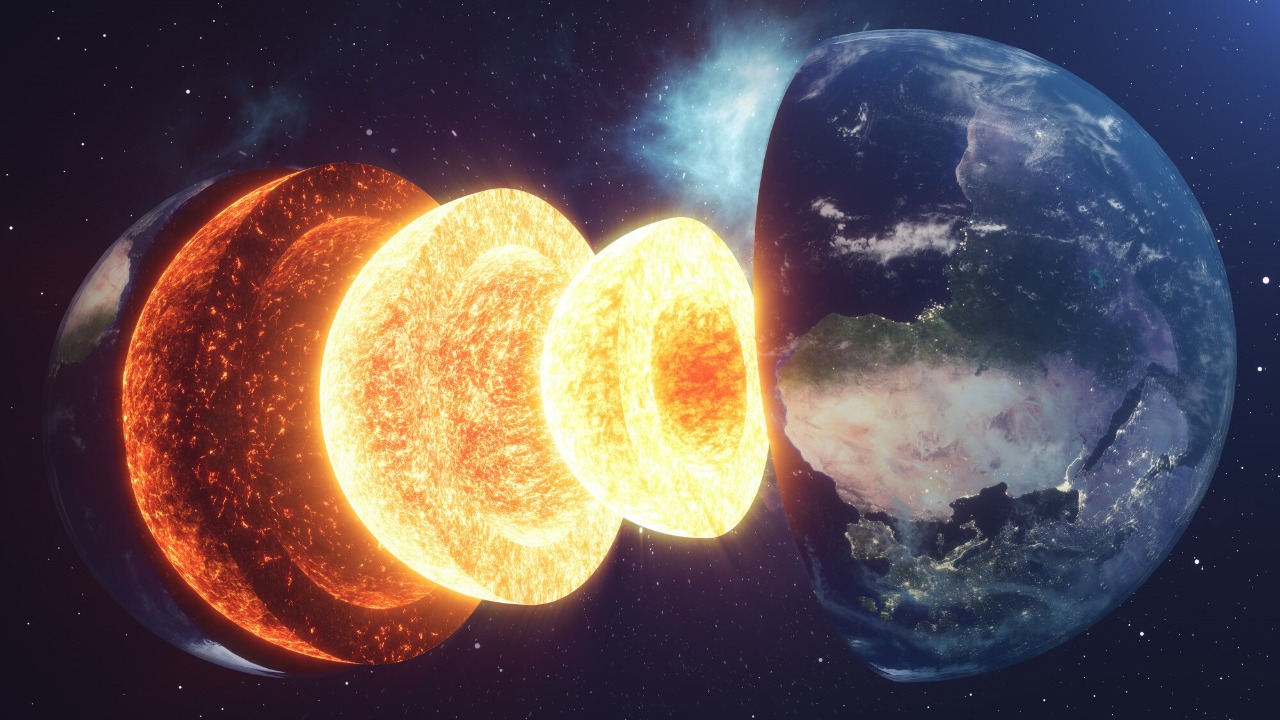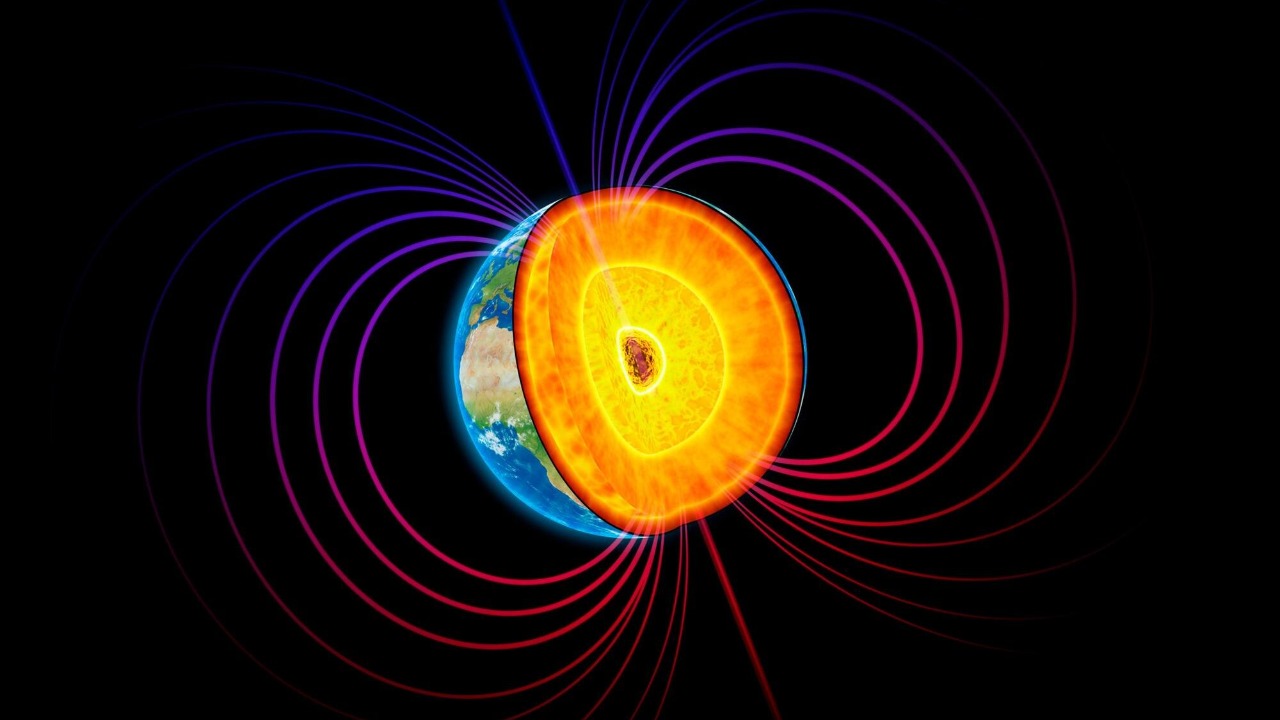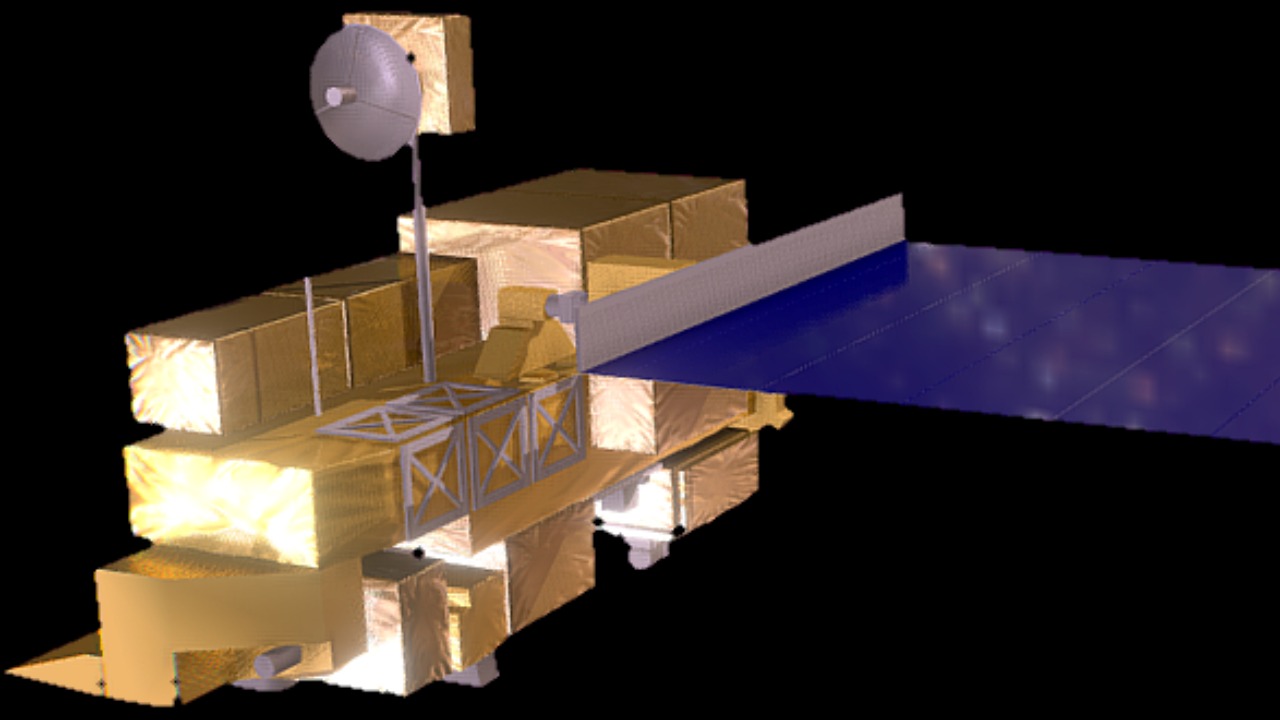In a groundbreaking discovery, satellites have recently captured the “haunting” sound of Earth’s core in motion. This phenomenon has been transformed into soundscapes, offering a unique perspective on Earth’s magnetic field history.
The Sound of Earth’s Core in Motion

Recent advancements in satellite technology have allowed scientists to capture the sound of Earth’s core in motion, a feat previously thought to be impossible. The Daily Galaxy reports that this discovery is considered groundbreaking due to the intricate understanding it provides about the Earth’s core and its magnetic field.
The sounds captured are described as “haunting,” a term that encapsulates the eerie and mysterious nature of these deep Earth noises. These sounds, although not audible to the human ear, offer a unique insight into the movements and processes occurring deep within our planet.
The Daily Galaxy further elaborates that this achievement has been made possible by the latest advancements in satellite technology. These satellites, equipped with highly sensitive instruments, are capable of detecting the minute vibrations caused by the movement of Earth’s core. These vibrations, when processed and transformed into sound, create the ‘haunting’ sounds that have been captured.
These sounds are not just fascinating to listen to, but they also hold a wealth of scientific information. By analyzing these sounds, scientists can gain insights into the behavior of the Earth’s core, its rotation, and the generation of the planet’s magnetic field. This could lead to a better understanding of geological phenomena such as earthquakes and volcanic eruptions, and could also provide clues about the Earth’s past and future magnetic field reversals.
From Magnetic Field History to Soundscapes

A new study has taken this discovery a step further by converting Earth’s magnetic field history into soundscapes. According to SSBCrack News, this innovative approach has allowed researchers to transform magnetic field data into auditory information, creating a symphony of sounds that represent the Earth’s geological past.
The scientific methods used in this transformation process are complex, involving the conversion of magnetic field data into frequencies that can be interpreted as sound. This process allows scientists to “listen” to the Earth’s history, providing a unique perspective on geological events and processes.
These soundscapes have significant implications for our understanding of Earth’s geological history. They offer a new way to interpret and analyze the Earth’s magnetic field history, potentially leading to new discoveries about our planet’s past and its future.
Controversial Military Changes Amid Satellite Discoveries

While these scientific discoveries are making waves in the academic world, they are also causing ripples in the political sphere. Defense Secretary Hegseth has implemented controversial military changes amid these satellite discoveries, as reported by SSBCrack News.
These changes have been met with mixed reactions, particularly in light of President Trump’s remarks on domestic deployments. The President’s comments have sparked a debate about the role of the military in domestic affairs, a debate that has been further fueled by these recent satellite discoveries and their potential implications for national security.
According to SSBCrack News, Defense Secretary Hegseth’s changes involve a shift in the military’s focus towards space and satellite technology. This move is seen as a response to the increasing importance of satellite data in various fields, including geology, climate studies, and national security. The military’s role in these areas is expected to grow, as satellite technology continues to advance and produce more detailed and accurate data.
However, these changes have also raised concerns about the potential militarization of space and the implications for international relations. Critics argue that the focus on space could lead to an arms race in space, with countries competing to develop more advanced satellite technology for military purposes. This could potentially escalate tensions and lead to conflicts. On the other hand, proponents of the changes argue that they are necessary to protect national interests and maintain technological superiority in an increasingly competitive world.